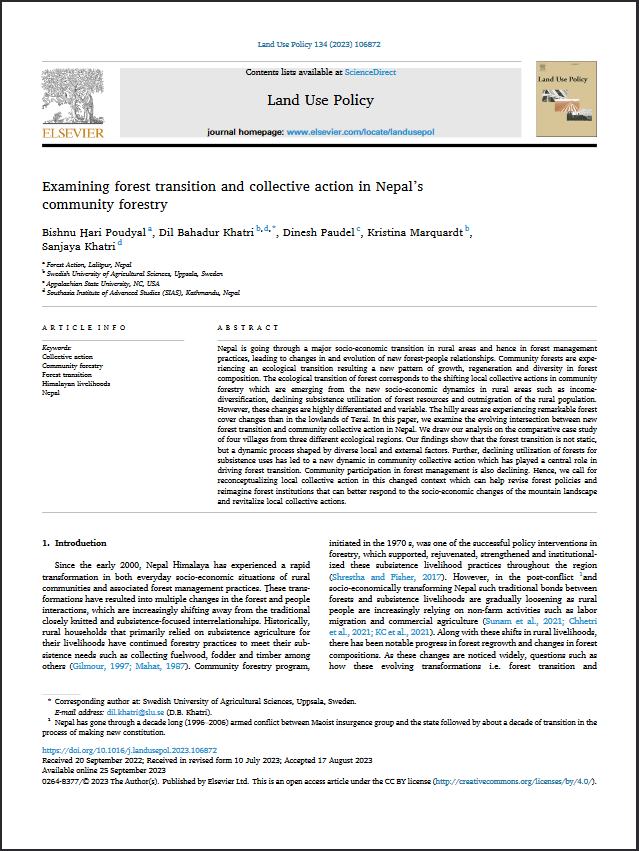Published online: 17 October 2016
Authors: Dil Khatri, Krishna Shrestha, Hemant Ojha, Govinda Paudel, Naya Paudel and Adam Pain
Available at: https://doi.org/10.1017/S0376892916000369
ABSTRACT
The growing challenge of food insecurity in the Global South has called for new research on the contribution of forests to food security. However, even progressive forest management institutions such as Nepal’s community forestry programme have failed to address this issue. We analyse Nepal’s community forestry programme and find that forest policies and local institutional practices have historically evolved to regulate forests either as sources of timber or as a means of biodiversity conservation, disregarding food security outcomes for local people. Disciplinary divisions between forestry and the agriculture sector have limited the prospect of strengthening forest–food security linkages. We conclude that the policy and legislative framework and formal bureaucratic practices are influenced by ‘modern forestry science’, which led to community forestry rules and practices not considering the contribution of forests to food security. Furthermore, forestry science has a particularly narrow focus on timber production and conservation. We argue for the need to recognise the importance of local knowledge and community practices of using forests for food. We propose adaptive and transformational approaches to knowledge generation and the application of such knowledge in order to support institutional change and policy reform and to enable landscape-specific innovations in forest–food linkages.







